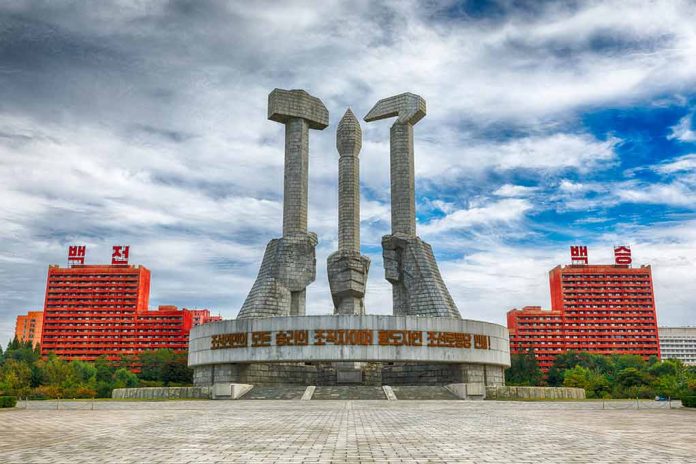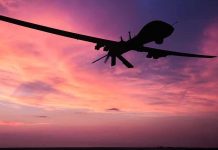
North Korea’s military involvement in the Russia-Ukraine war marks a significant escalation, raising concerns about global security and geopolitical stability.
At a Glance
- Approximately 10,000 North Korean troops are believed to be in Russia, with some heading to fight Ukrainian forces
- North Korea’s involvement provides Russia with additional manpower and military supplies
- South Korea is working more closely with NATO and European partners in response
- The situation may lead to increased instability on the Korean Peninsula
- This cooperation indicates a growing “axis of upheaval” involving China, Russia, North Korea, and Iran
North Korean Troops Enter the Fray
Reports of North Korean military involvement in the Russia-Ukraine conflict have sent shockwaves through the international community. Ukrainian intelligence, corroborated by South Korea’s National Intelligence Service and confirmed by the White House, has revealed that North Korean soldiers are training in Russia for deployment to Ukraine. This development represents a significant shift in the war’s dynamics and raises questions about its potential global impact.
The scale of North Korea’s involvement is substantial, with an estimated 10,000 troops believed to be in Russia. Some of these forces are reportedly heading to the Kursk region to engage Ukrainian forces directly. This influx of North Korean military personnel provides Russia with much-needed manpower and alleviates some of the pressure on its conscription efforts.
Motivations and Risks
Russia’s decision to accept North Korean troops stems from its need to bolster its forces in the face of significant casualties and manpower shortages. For North Korea, this cooperation offers potential economic benefits, military-technical assistance, and valuable combat experience for its troops. However, the effectiveness of these troops remains uncertain due to potential integration challenges with Russian forces.
North Korea faces its own risks in this venture, including the potential for desertions and defections among its soldiers. The troops being deployed are reportedly from the elite 11th Corps, known as the “Storm Corps,” which specializes in infiltration, sabotage, and assassinations. Despite their lack of recent combat experience, these soldiers are known for their physical and mental resilience.
Global Implications
The involvement of North Korean troops in the Russia-Ukraine conflict has far-reaching implications for global security and geopolitics. South Korea, in particular, has expressed concern over this development and is working more closely with NATO and European partners in response. While South Korea has not yet decided on direct military involvement, it is considering sending weapons and intelligence support to Ukraine.
“For North Korea, [such deployments are] a good way to earn money,” said Andrei Lankov, director of the Korea Risk Group.
China, while publicly maintaining neutrality, is concerned about regional instability and increased cooperation between South Korea, Japan, the United States, and NATO. The North Korea-Russia military cooperation suggests a growing “axis of upheaval” involving these nations along with Iran, potentially encouraging other countries to strengthen ties with Russia.
"The deployment of North Korean troops to aid Russia marks an ominous new level of cooperation between Moscow and Pyongyang. The alliance could further escalate and globalize the conflict," write @LianaFix and Benjamin Harris. https://t.co/IpSCGbwHsV
— Council on Foreign Relations (@CFR_org) October 28, 2024
Looking Ahead
As the situation continues to evolve, the international community remains vigilant. The United States has warned that North Korean troops would be considered legitimate military targets if they enter combat. This escalation may lead to increased instability on the Korean Peninsula and necessitate preparation for potential further escalation in Northeast Asia.
The long-term consequences of North Korea’s involvement in the Russia-Ukraine war are yet to be fully understood. However, it is clear that this development has the potential to reshape global alliances, influence strategic calculations of nations worldwide, and significantly impact the course of the conflict and beyond.
Sources:
- https://apnews.com/article/russia-ukraine-war-north-korea-troops-33bf427736…
- https://www.brookings.edu/articles/what-do-north-korean-troop-deployments-to-russia-mean-for-geopolitics/
- https://www.bbc.com/news/articles/cm2796pdm1lo
- https://www.nytimes.com/2024/12/23/us/politics/russia-ukraine-north-korea.html










